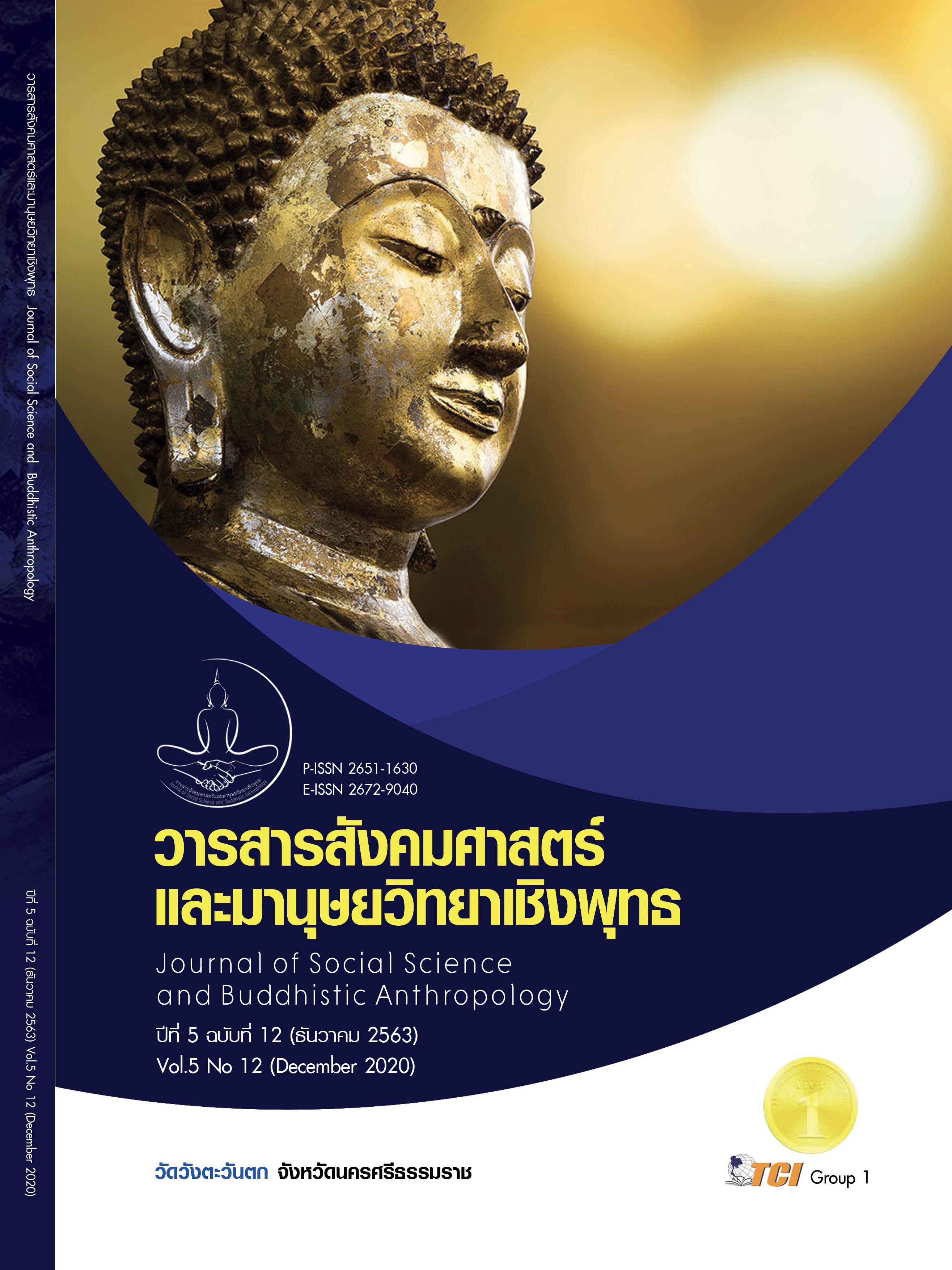POWER EXERCISING PROCESS OF CONSTITUTIONAL COURT UNDER CONSTITUTION OF THAILAND 2007 AFFECTING POLITICAL DEVELOPMENT OF THAILAND
Keywords:
Constitutional Court, Power Exercising Process, Political DevelopmentAbstract
The objectives of this research article were; 1) to identify problems in power exercising of Thai constitutional court, and 2) to analyze constitutional court’s power exercising process affecting Thailand’s political development. This is a qualitative research gathering data via documentary researching and in-depth interviewing. The samples include 14 key informants which are former prime -minister, the head of the parliament, members of the house of representatives, medias, Political Science and Law academics. The collected data have been descriptively analyzed and the findings are; 1)The power exercising problem occurred in Thai constitutional court under Thailand’s 2007 constitution includes; the conflict in acceptance of individuals’direct -petition in the case of overthrowing democratic regime of government with the King as Head of State, and the problem in over interpretation over constitution, 2) The constitutional court’s power exercising process did not fully distribute ultimate effectiveness and trust towards the institution and political system, mainly caused by lacking of legitimated court hearing law, this affects Thailand’s political development by neither distributing stabilized political process nor enhancing political institutionalization.
References
คำสั่งหัวหน้าคณะรักษาความสงบแห่งชาติ ที่ 24 /2560. (2560). ราชกิจจานุเบกษา เล่ม 134 ตอนพิเศษ 109 ง. หน้า 21-22 (20 เมษายน 2560).
จาตุรนต์ ฉายแสง. (26 กรกฎาคม 2561). ศาลรัฐธรรมนูญ. (ชนะศึก วิเศษชัย, ผู้สัมภาษณ์)
ทิพภานิดา ปาลกะวงศ์. (2556). ความชอบธรรมของศาลรัฐธรรมนูญในระบบการเมืองไทย. ใน ดุษฎีนิพนธ์ปรัชญาดุษฎีบัณฑิต สาขาการเมือง. มหาวิทยาลัยรามคําแหง.
นรนิติ เศรษฐบุตร. (18 มิถุนายน 2561). ศาลรัฐธรรมนูญ. (ชนะศึก วิเศษชัย, ผู้สัมภาษณ์)
บวรศักดิ์ อุวรรณโณ. (2546). ศาลรัฐธรรมนูญ ตามรัฐธรรมนูญแห่งราชอาณาจักรไทย พ.ศ. 2540. กรุงเทพมหานคร: สถาบันพระปกเกล้า.
สำนักงานศาลรัฐธรรมนูญ. (2550). ความรู้เกี่ยวกับศาลรัฐธรรมนูญ. กรุงเทพมหานคร:พี. เพลส.
Barrett, K. (2014). Constitutional courts, legislative autonomy, and democracy: What price right? Retrieved October 18, 2018, from http://www.proquest.com
Ginsburg, T. & Elkins, Z. (2009). Ancillary Powers of Constitutional Courts . University of Texas, Austin: School of Law Publications, Inc.
Huntington, S. (1969). Political Order in Changing Societies. (2nd Edition). Connecticut: Yale University Press.
Kuhonta, E. M. & Sinpeng, A. (2014). Democratic Regression in Thailand: The Ambivalent Role of Civil Society and Political Institutions In Contemporary Southeast Asia. A Journal of International and Strategic Affairs, 36(3), 333-355.
Lipset, S. M. (1964). Political Man. London: Mercurybooks.









